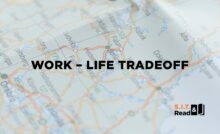Innovation Telltale
If you want innovation in your company, hire innovative people. But how do you know if someone is innovative? What do you look for? What telltale evidence might suggest that a person has superior innovation skills?
Several years ago, I ran a youth hockey league for ages 6 to 18. A laborious part of this volunteer job was managing the selection of players for the elite travel teams. Fifty or so boys would compete for twenty slots on one of 20 teams. A group of coaches rated players on skating speed, puck handling, passing, and shooting. As league commissioner, I attended each evaluation…that’s right…all them. That’s 100 hours of evaluations plus many more hours tabulating the data, selecting players, and communicating with parents.
One year, I noticed something unusual in the data. A bit of regression analysis of the evaluations told a remarkable story: every player selected on every team also happened to be the fastest skaters in their tryout pool. In other words, we could have selected players with one simple variable, skating speed, instead of the tedious coaches’ ratings of multiple skills over multiple sessions.
I was shocked. We could have done a simple race from one end of the rink to the other, about 10 seconds in duration, for the entire group of candidates at each age group. The first twenty to cross the finish line make the team. Skating speed was essentially a predictor of all other hockey skills. It was a telltale of hockey success. Fifteen minutes of time trials could predict with perfect success the best players for twenty teams instead of 100 plus hours of evaluations. It could have been that simple.
What is the telltale of innovation? I think I know the answer. But, just as with the youth hockey experience, I will need to collect data to be sure. My hypothesis is mental searching speed, an idea that Yoni Stern at S.I.T. taught me. This is a measure of how well you “Google” your own mind and memory for information or experiences when given a task. The task in the case of innovation is to take a Virtual Product (a mental abstract produced through the S.I.T. method), and mentally search your mind to find many productive, innovative uses for it. Whoever can find the most ideas for a given task is more innovative in my view. They “make the team.”
My task now is to select a different team – a team of research collaborators to find and validate the Innovation Telltale, something the Fortune 100 will surely value.
Recent Posts
Innovation Behavior
Innovation is a skill, not a gift. Top organizations drive growth by nurturing and investing…
Should you learn TRIZ? – Yes. ….and No.
Are you in the world of problem solving? Is problem solving a skillset you have…
What Lies Ahead in 2024?
5 Data-Driven, Customer-Centric trends we’ve identified This is not just another conventional forecast. Over nearly…
Fork or Chopsticks – Which Innovation Tools Do You Use?
Imagine a chef, who only uses a spoon. Imagine a dentist, who only uses a…
The Moat Mentality: Exploring New Frontiers in Innovation Methodologies
In investing and business strategy, we often speak in terms of moats. Warren Edward Buffett…
Was it a Breakthrough or an Adjacency?
This year, P&G’s Febreze celebrates its silver anniversary as a brand. But not all 25…



View Comments
In my mind, it somewhat resembles those improve games where each team gets an object and tries to come up with as many ideas on how to use it in a minute or so.
Such an exercise could be a great "warm up" for the brain at the beginning of an innovation session.
Very interesting concept.
It leads me to think that a good exercise to benchmark peoples creativity potential can be the improve exercise where you get an object and have to come up with as many uses to the object as possible.
This exercise can also be as a "warm up" for the brain at the beginning of an innovation session
hi Drew
fascinating. first, in my culture, the fact that you were a hockey league commisioner and spent 100 hours analyzing data of players is in itself an example of radical innovation. but the speed skating result, although interesting. may be interpreted in more than one way. as far as i understand it, your itnerpretation is that regression taught you that speed is the perfect indicator for a great h-player. i think it just taught you that it is a great predictor of who people THINK will be a great h-player. what if it only means that speed biases people in their selection? and that actually some great players-to-be are never selected because they are slow.
same for our mutual friend Yoni's theory - it may be correct, but it may also be that this speed handling is just an impressive trait that correlates sometimes with the ability to innovate.
which doesnt make your hockey observation less interesting for me(:
Amnon, you are correct. Speed is a predictor of what a group of coaches believe are the best group of players. Interestingly, the coaches never fully bought in that a single (objective) indicator could predict what their years of (subjective) experience would predict. They ignored the time trials and focused instead on their evaluation scoring of other skills. They held onto the same suggestion you make here that their MAY be that one slow player who was better than the faster players. In all my years of dealing with youth hockey, they could never show me one. I trust the data. That is why we will need to collect data on some potential innovation telltales.